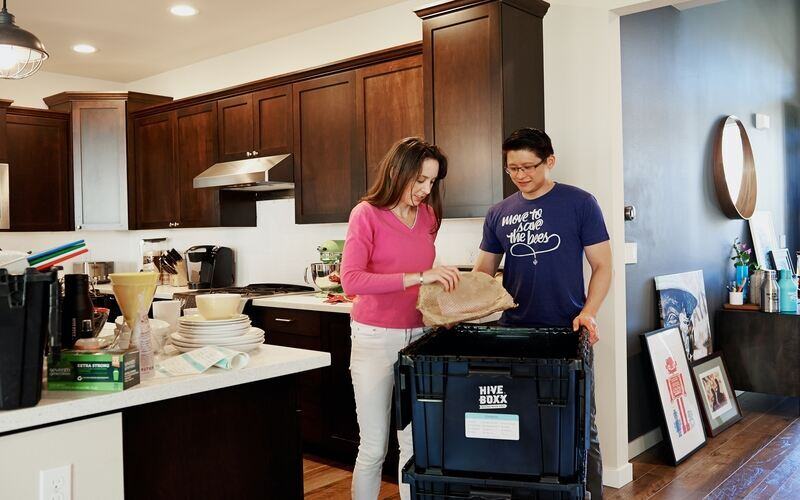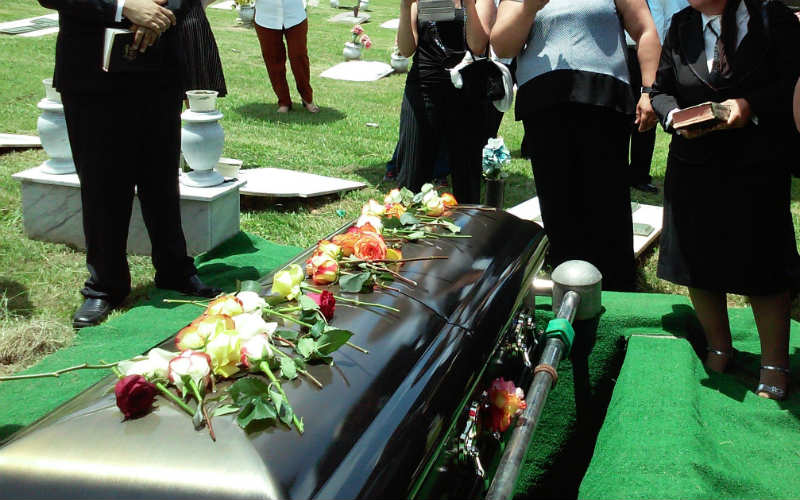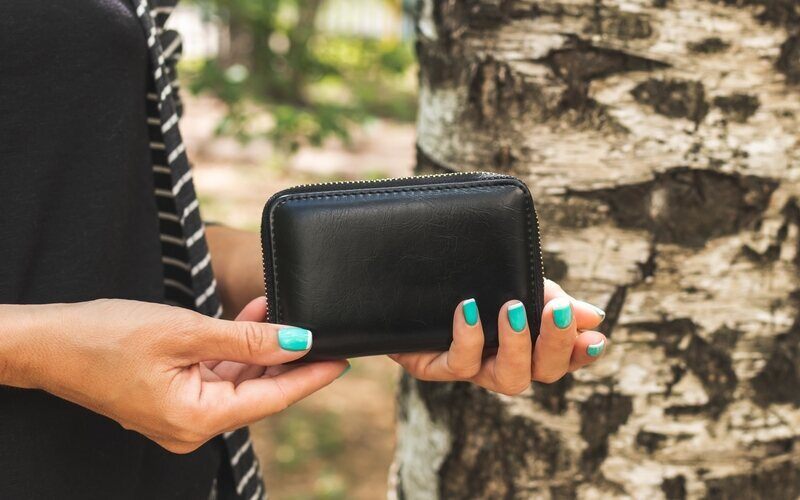
We’re talking about financial abuse, a form of abuse so common it costs the economy $15.6 billion per year. But of course, it has a real human cost too, one that can’t be expressed in a number.
In part 1 of our 2 part series on financial abuse, we’ll explain what domestic financial abuse is, how many people it affects, how you can recognise it, and most importantly, what you can do if you’re one of the many who experience it.
You can do the same in part 2 of our financial abuse series on elderly financial abuse.
If you or someone you know is experiencing domestic or family violence, call 1800RESPECT
In an emergency or if you’re not feeling safe, always call 000.
What is financial abuse?
Financial abuse is generally described as controlling someone’s ability to acquire or use their own financial resources or manipulating their finances for your own benefit. This can include stealing money, coercing or guilting them into signing something, restricting their ability to withdraw money from ATMs, siphoning their paycheque and so on. As opposed to scams by strangers, financial abuse often involves two or more people who have a close relationship.
Spousal/partner financial abuse
This type of financial abuse is an offshoot of domestic violence, as it is committed by one member of a relationship against the other. It affects both men and women, although women account for around twice as many cases. According to Co-Founder and Author of the Financy Women’s Index, Bianca Hartge-Hazelman, common ways a partner or spouse can be the victim of financial abuse include things like:
-
Controlling access to their money, such as restricting access to bank cards, making them ask permission for money, not contributing to shared costs etc.
-
Having a partner cancel essential services or refusing to pay debts
-
Avoiding child support payments, or reducing their share of child expenses
-
Not being allowed to open or see joint bank statements or details
-
A partner generating economic cost or debt in your name
-
A partner damaging someone’s property to cost them money in repairs
These are just some of many more examples, and they can often be gradual enough that the victim doesn’t even notice it happening until it’s too late. In a worst-case scenario, it can make people broke, full of debt or even homeless, while adversely affecting their mental health or physical safety.
“Financial abuse is all about disabling a person's financial independence so they essentially become stuck in a relationship that is controlling abusive and disempowered to leave,” Ms Hartge-Hazelman told Savings.com.au.
“It can also present itself in systems abuse, where one partner will seek to financially cripple another through legal proceedings.”
How many people suffer from domestic financial abuse?
Financial abuse is much more common than you might think, with millions of Australians potentially being impacted. In 2017 researchers from RMIT found more than two million Australians will experience financial abuse in their lifetimes: 15.7% of women and 7.1% of men. Overall, that’s around one in 10 people, and it’s much more common among relationships where someone already suffers from another form of abuse.
Of those who report emotional abuse, almost half of women (48%) and a third of men (35%) experience financial abuse too, according to research by the Australian Institute of Health and Welfare in 2016.
Among women who sought help from domestic violence services, the prevalence of economic abuse ranged from 78% to 99% (the Australian and New Zealand Journal of Public Health). It was also much more common among those who only finished high school, had a disability or received some kind of government financial support.
What are the telltale signs of domestic financial abuse?
There are ways you can pick up on someone being financially abused (either yourself or someone you know), or potentially if you are exhibiting some of these behaviours without realising.
It can be difficult to determine if someone in a relationship is being financially abused, and for the people who are, they might be too afraid or even embarrassed to do anything about it. One major red flag is a partner being unwilling to talk about finances. Some other key signs include:
-
They use a partner’s credit card without permission
-
They are very controlling of their partner’s money, and often invasive about their spending
-
They restrict access to bank accounts, or take a partner’s pay
-
They insist on signing all loans and documents in their name only
-
They generally make a partner feel stupid or incompetent about money
-
They prevent a partner from getting to work or from working at all
Generally, having a separate, emergency savings fund that only you know about, even with just a couple of months worth of expenses in it, can help you out in a desperate situation, so set one of these up now if you haven’t already, or encourage someone you know to do so.
Is enough being done to stop financial abuse?
The banks have a significant role to play in stopping financial abuse - that’s where most of the money comes from after all. And it turns out many of them already are taking steps to help customers avoid it. In mid-2020, Commonwealth Bank moved to ban users who send threatening messages in low-value transactions (often under $1).
“Our customers should always feel safe using digital banking. These changes will ensure that all customers can continue to enjoy the benefits of digital banking in a safe and secure way and represents our first step to address the issue of technology-facilitated abuse,” A Commbank spokesperson said at the time.
The Australian Banking Association also said it is offering ongoing training for branch tellers and staff to identify and help customers in sensitive situations.
“We are seeing the major banks such as CBA doing more to identify financial abuse. However there is still a lot more that can be done,” Ms Hartge-Hazelman said.
“The government needs to further amplify campaigns that identify financial abuse as part of its broader anti-domestic violence agenda.”
The COVID-19 pandemic has made financial abuse worse
While the coronavirus pandemic hogged most of the headlines in 2020, it seems that restrictions and lockdowns resulting from the virus have led to “a pandemic within a pandemic”, where forced isolation among partners and family has led to increased cases of abuse.
The Australian Institute of Criminology (AIC) surveyed the numbers of domestic violence cases after COVID restrictions were introduced in May. The data revealed almost one in 10 Australian women in a relationship experienced domestic violence during the coronavirus crisis - numbers that surely grew once Victoria went into lockdown. It also found 33% of respondents who said they have experienced abuse reported it was the first time it had happened to them.
Ms Hartge-Hazelman said she wouldn’t hesitate to say that the pandemic has led to an increase in financial abuse as well.
“Many front line agencies that help women and families experiencing domestic violence say abuse cases have basically doubled since the March Covid-lockdowns began,” she said.
Some shelters reported cases where perpetrators had lied about contracting the virus so their partner was forced to isolate with them, while new pandemic-specific cases involve the siphoning of a victim’s stimulus money or even forcing them to withdraw from their super.
“The result is reduced financial security. Being forced out of work in order to apply for JobKeeper or Seeker benefits. Essentially an insistence that you don't work to reduce your financial independence and security.”
See also: How to catch up if you've withdrawn your super early
What can victims of financial abuse do?
Getting help for financial abuse can be very tricky. In the case of relationships, some people don’t seek help because they’re afraid for their safety or feel ashamed or embarrassed. There are a lot of other reasons people don’t seek help, and one of them is that they don’t feel there’s any help out there for them. But there is plenty of free and confidential help out there.
ASIC’s MoneySmart lists a number of free and confidential helplines you can call, which we’ll list below. But remember, if you feel your life is in danger, or the life of someone you know, then call 000.
|
Help for families affected by relationship or separation issues |
Family Relationship Advice Line |
|
Crisis support |
13 11 14 24 hours |
|
Family violence, abuse and sexual assault counselling |
24 hours |
|
Help if you're struggling with debt |
|
|
Family counselling, mediation and dispute resolution services |
Relationships Australia |
|
Help to get back on your feet |
Good Shepherd Australia Financial Independence Hub |
Source: MoneySmart
10 steps for people trapped in a financially abusive relationship
In the meantime, if your situation is desperate, Ms Hartge-Hazelman gives 10 solutions you or someone you know can utilise if leaving the situation is paramount.
-
Plan your escape with trusted people.
-
Try to find out as much about your financial situation as you can.
-
Make copies of everything that identifies you or with your address on it – photo ID, passports, bank statements, mortgages, credit cards, superannuation, telephone and utility bills as well as any subscriptions with your name on it.
-
Change to SMS or electronic email statements or bills, as much as possible over direct postal mail. Change your forwarding address of important mail if you know where you are leaving to, and if you cannot use or access a private email account.
-
Contact your financial institutions and ask to speak with someone who handles domestic violence issues. Most of the big banks have services to help protect victims from abusers. National Australia Bank is one of the big banks that provide specialist assistance in this space.
-
Stash all of your private financial or other important information or items with a trusted friend or in a safe place that your abuser won’t get access to ahead of your leaving.
-
Build your emergency escape fund
-
Talk, if you can, to your employer. Given the Federal Government’s introduction of up to five days leave for victims of domestic violence, it might be appropriate to let your human resources (HR) department know what is going on at home. You may be able to take advantage of leave. Or, advise your employer ahead of schedule if you have to leave to plan your escape: They might be able to help you in creating distance or security between you and your partner while you work.
-
Know where you’re going and what it’s going to cost
-
Know your legal options. Finally, try if you can to get legal advice through legal aid first before going to a lawyer. This is important as legal aid can only represent for one party, and if you are registered they cannot act for your partner in the same matter.
Free legal advice is widely available if needed.
Savings.com.au’s two cents
Savings.com.au’s purpose to help people save money and achieve financial independence, and financial abuse is in direct opposition to what we stand for. Preventing someone from using and accessing their own money or controlling the trajectory of someone’s future wealth is unacceptable.
The effects of financial abuse are wide-ranging, and there’s a good chance someone reading this is affected by it in some way, either themselves or someone they know. We aren’t going to give advice we aren’t qualified to give regarding people’s wellbeing, but we will recommend calling any of the support numbers listed above or the police if necessary. An expert trained to deal with financial abuse will be able to help.
In the meantime, we should all take extra steps to look out for one another. Check-in on a friend or relative, and learn to look for the telltale signs that not all is right with their finances.


 Rachel Horan
Rachel Horan
 Harry O'Sullivan
Harry O'Sullivan













